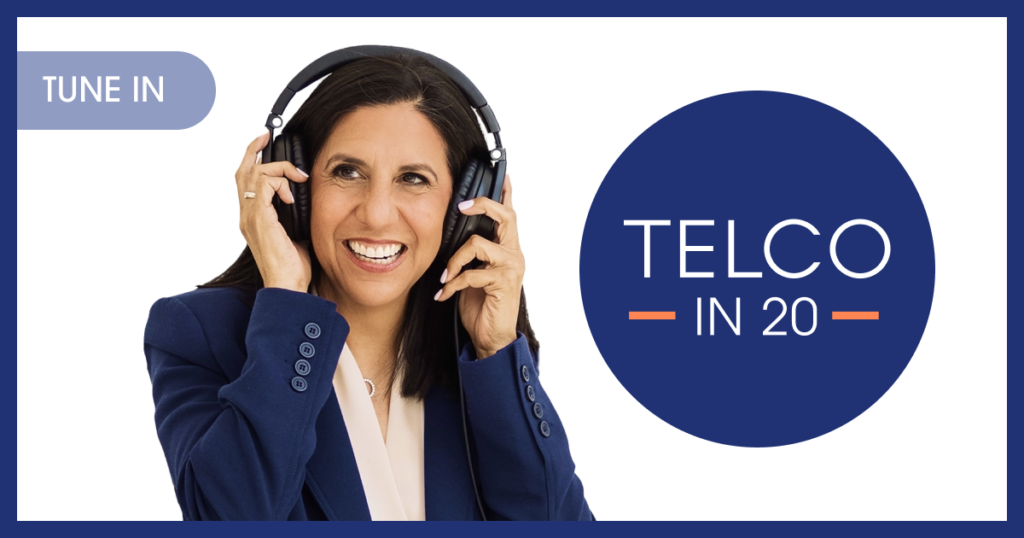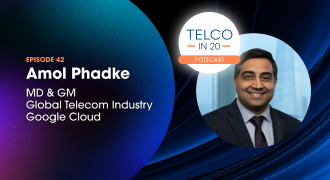I wish more telcos were like Vodafone.
I remember when Simon Harris, group head of big data delivery at Vodafone, spoke at Google Cloud Next in October of 2019 about the analytics project the company took on with Google. It was going to rebuild Vodafone’s data ocean on Google Cloud so it could eliminate more than 600 on-premise Hadoop servers and power-up business intelligence, artificial intelligence (AI), and machine learning (ML) analytics.
“Neuron,” which is what Vodafone called this big data analytics platform, provided real-time business insights from customer service to network planning and optimization to operations in 11 countries. At the time, a Google Cloud blog quoted Simon Harris as saying, “Neuron serves as the foundation for Vodafone’s data ocean and the brains of our business as we transform ourselves into a digital tech company.” The TelcoDR team wrote a case study on the project, estimating that Vodafone saved about 70% TCO on the project. Not bad for a start.
From first step to stepping stone
Bringing all that data together in one place—rebuilding what Vodafone already had, but with cloud native tools in the cloud—was just the first step in Vodafone’s continuing evolution from a telco to a tech-co. Once the company had some experience working with the Google Cloud team and technologies, it next created the Nucleus platform, which was announced about 18 months later – in May 2021.
Nucleus is a single source of truth for the whole organization that helps people make decisions that can reduce costs, streamline operations, and bring new offerings to subscribers around the world. As Amol Phadke, the managing director and general manager of Google Cloud, explained in my recent podcast, Nucleus can process dozens of terabytes of data every day.
What’s unique about Nucleus is that it aggregates data from a number of different sources across different countries within Vodafone’s deployed models. According to Amol (at 4:45 in the podcast), “It is a hybrid cloud in the sense that the data sits in disparate places and sources, and it gets moved seamlessly into cloud… essentially, you take all of the data together and then drive those insights.”
It’s an industry first, in an industry that really needs this kind of data processing power.
Next for Vodafone on its cloud native data journey? A pan-European cloud-native network performance platform, which Vodafone announced in May 2022. It will draw on eight-billion network data sources, analyze them with AI, and create a single source of business insight for Europe, replacing more than 100 network apps in use today. This project gives Vodafone insights into network data such as traffic patterns so the company can add capacity, respond to major incidents, manage energy efficiently, and restore services after severe weather. Vodafone cites a nearly 70% fall in network and IT incidents this year as a result of the project. Damn.
Finally, in July Vodafone announced AI Booster, a scalable, unified AI/ML platform built entirely on Google Cloud that integrates with Neuron to optimize customer experiences, customer loyalty, and product recommendations.
When you put all of these announcements together, it’s clear that the scale and software of the public cloud is giving Vodafone an advantage over other telcos that will only continue to separate it from competitors. Its forward-thinking attitude, commitment to rapid experimentation, and willingness to adopt new technology quickly have fueled its flywheel of success and built new capabilities in record time. All powered by the public cloud.
Vodafone is years ahead of the industry
Vodafone has put in the hard work with Google (coming up on three years now) and has maneuvered into a great position: it has the ability to get insights at the subscriber level where it may be able to influence business and consumer behavior. Vodafone understands the basic equation that knowing your customers is the key to business success, so it started its cloud transformation by mining subscriber data years ago. It has continued to take on more ambitious projects as its technologists and leaders learn more about what’s possible with the public cloud.
And that’s the key to the Vodafone project: the public cloud. The scale and unlimited storage capacity of the public cloud allow you to ingest petabytes and petabytes of data. You have access to compute power that can scale up in milliseconds to analyze all that data. With the databases of the public cloud that scale instantly and elastically, you can use the right tool for the job: SQL, noSQL, graph, or big dumb tables. Finally, you have access to global-scale, world-class analytical tools that the hyperscalers have tested in their own businesses. The best part: you pay by the use! You don’t have to pre-provision, pre-buy, pre-set up, negotiate multi-year agreements with multiple vendors, refresh servers, manage licenses, buy maintenance, and deal with all the crap you’ve historically had to manage to get what you really want: valuable insights on your business so you can take action and grow your ARPU.
As Lao Tzu says, “The journey of a thousand miles begins with one step.” Telcos, it’s time to realize this is your path to higher ARPU. So go strap on those Air Jordans and get going.



 Get my FREE insider newsletter, delivered every two weeks, with curated content to help telco execs across the globe move to the public cloud.
Get my FREE insider newsletter, delivered every two weeks, with curated content to help telco execs across the globe move to the public cloud.




